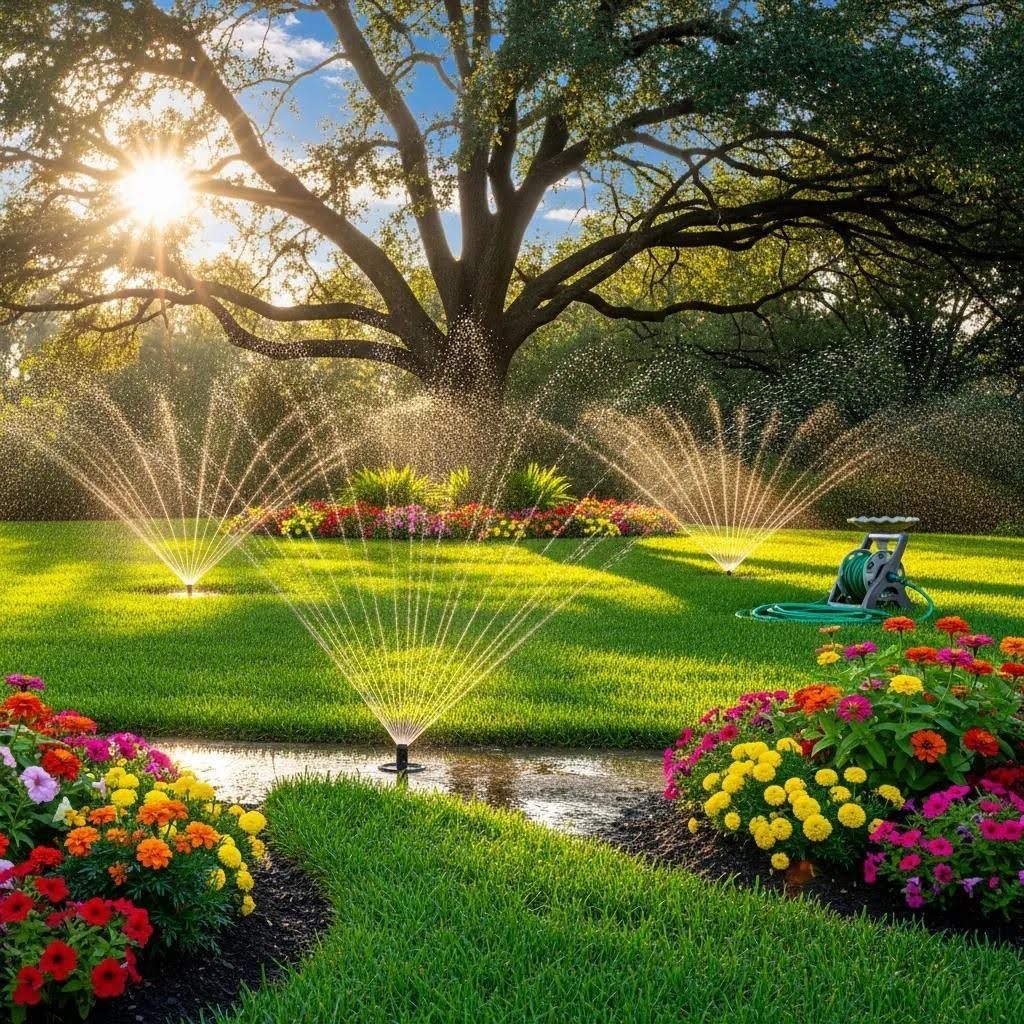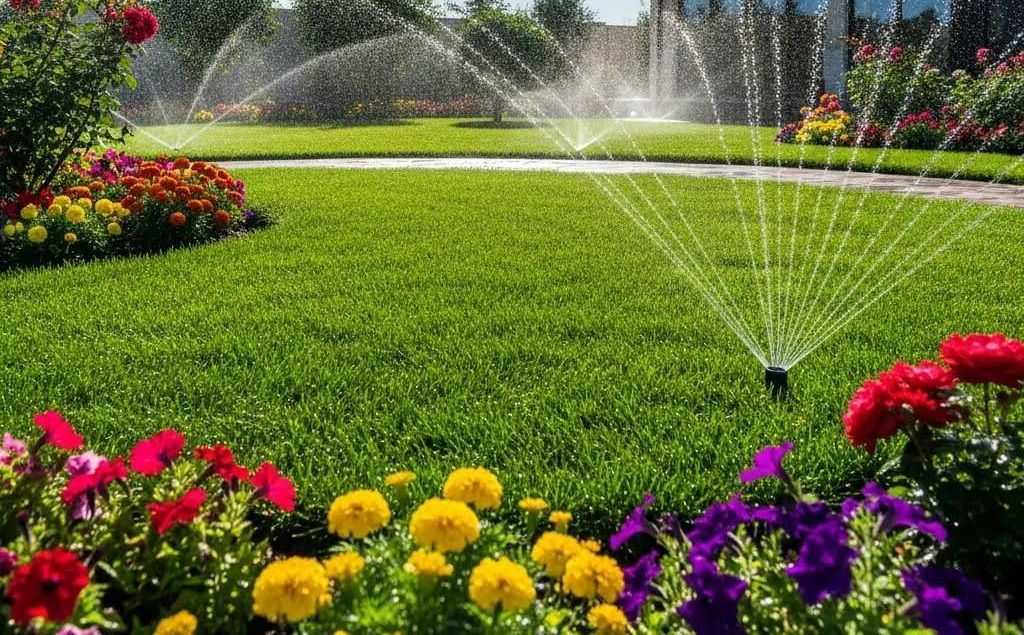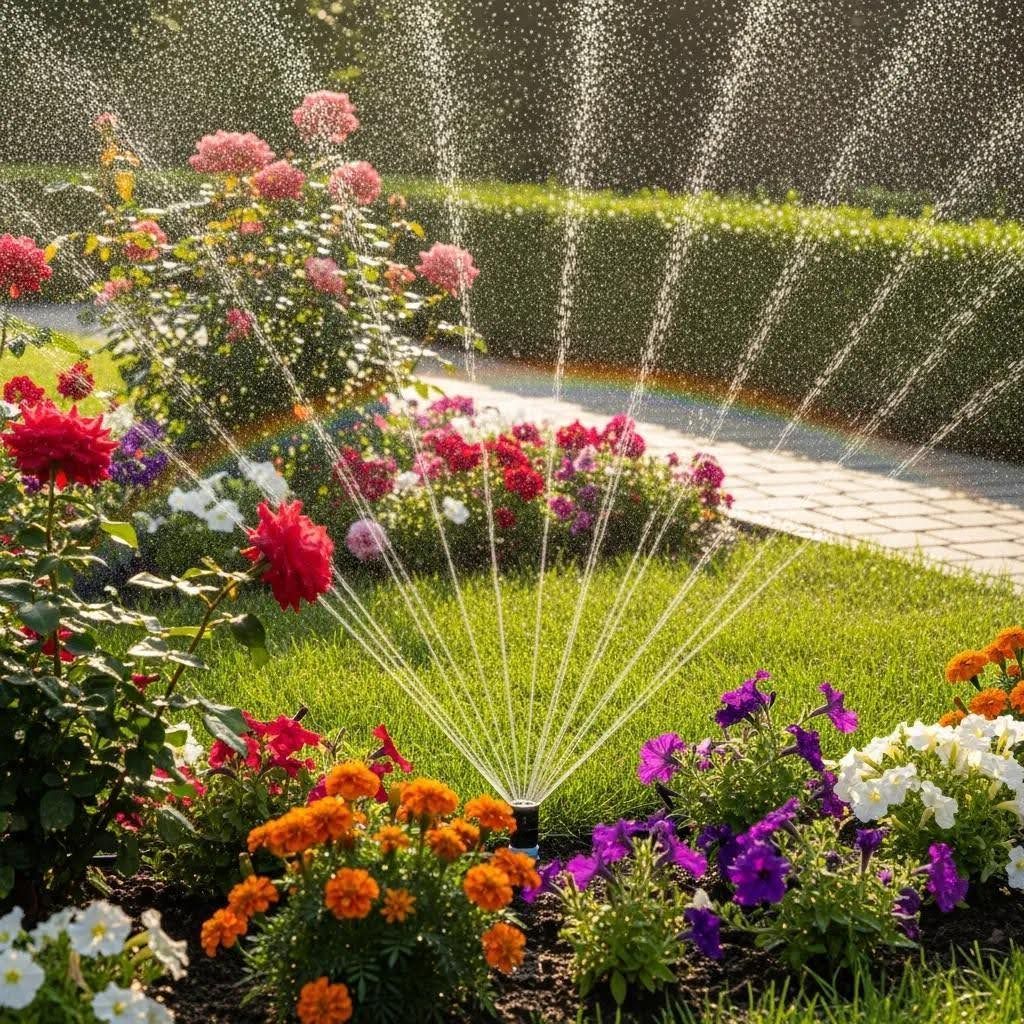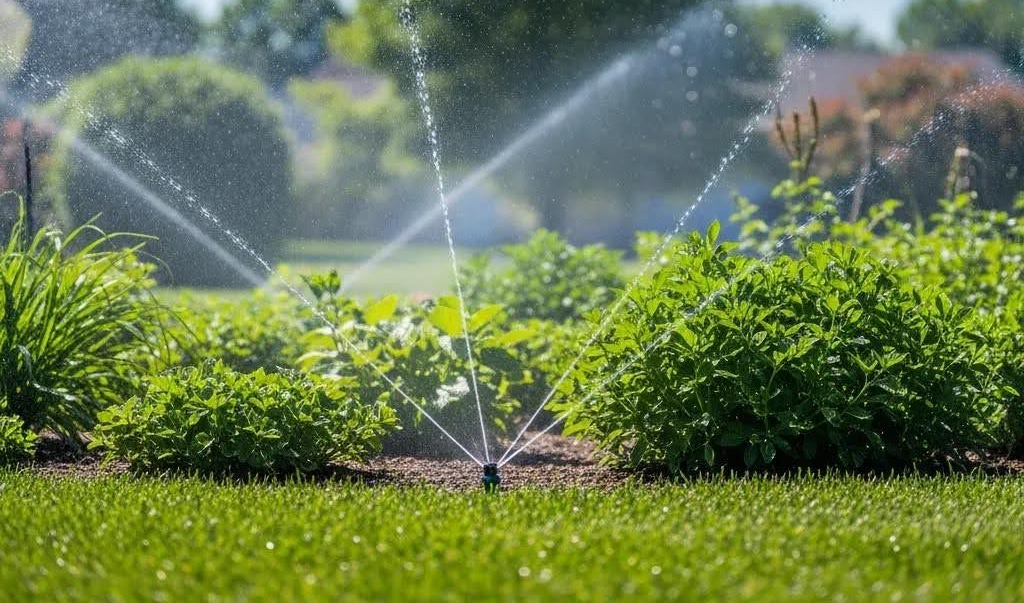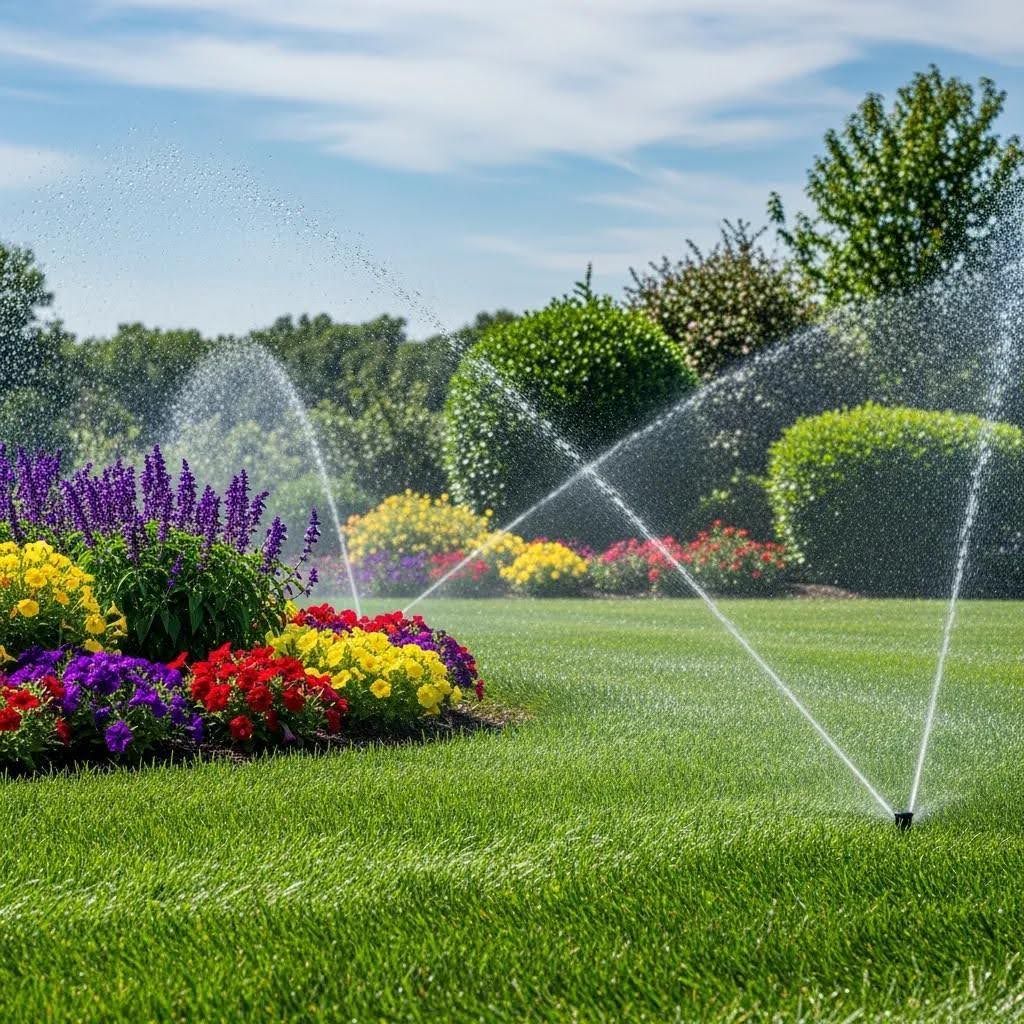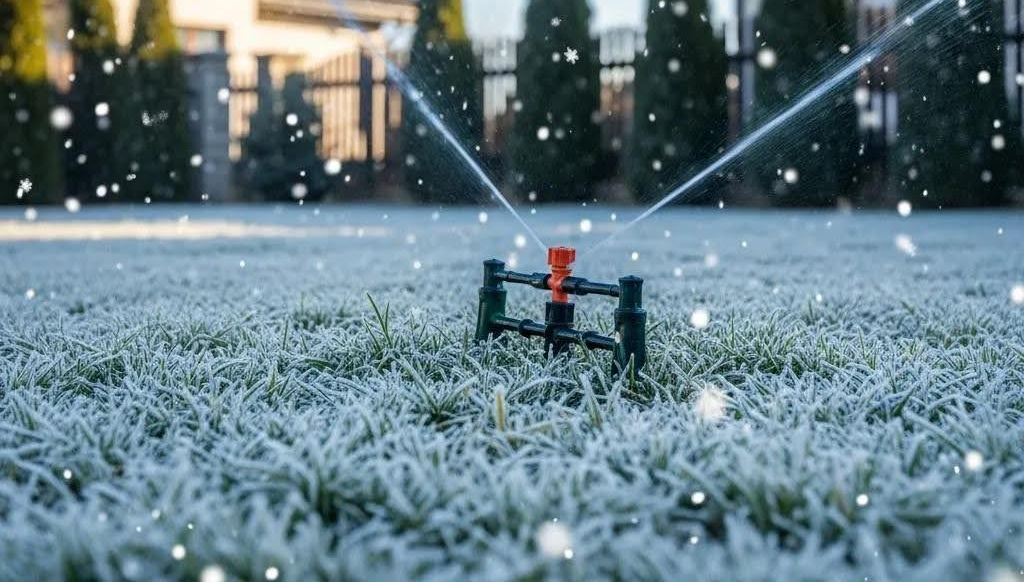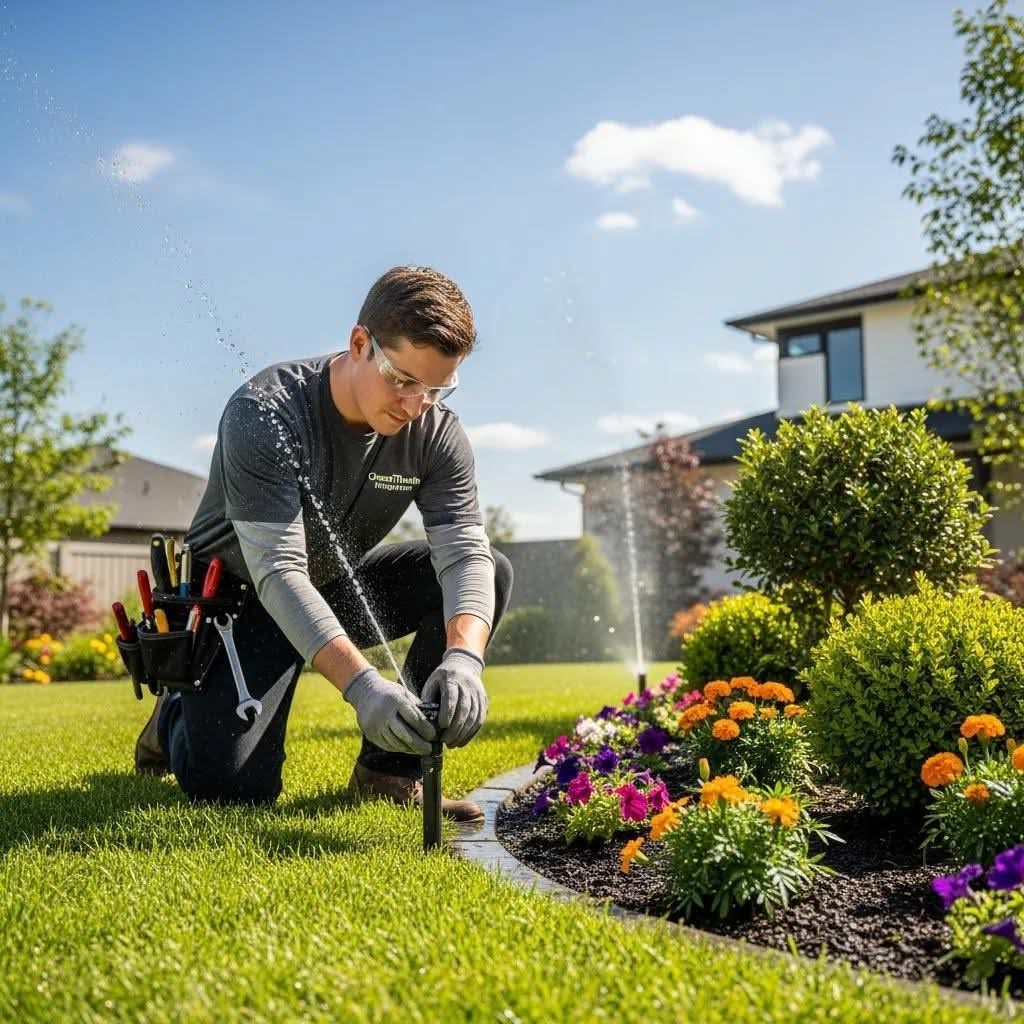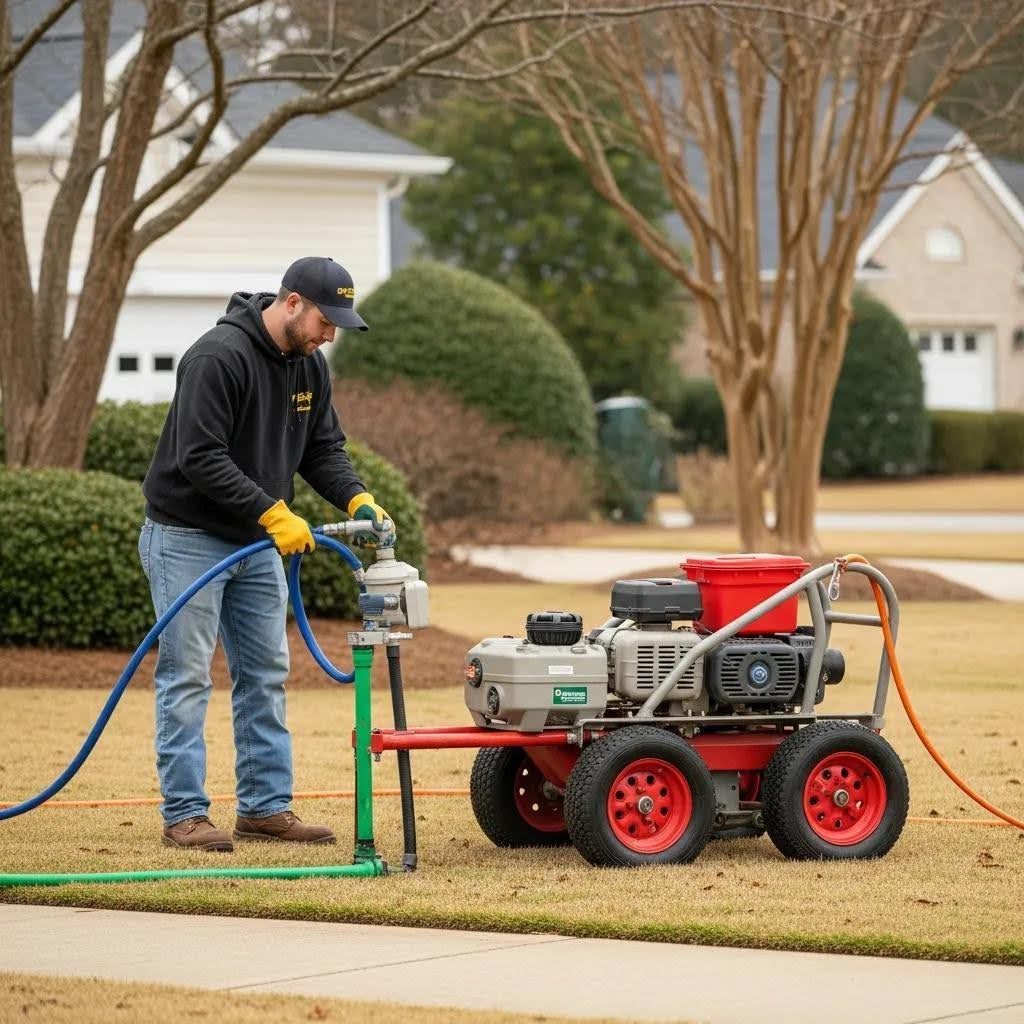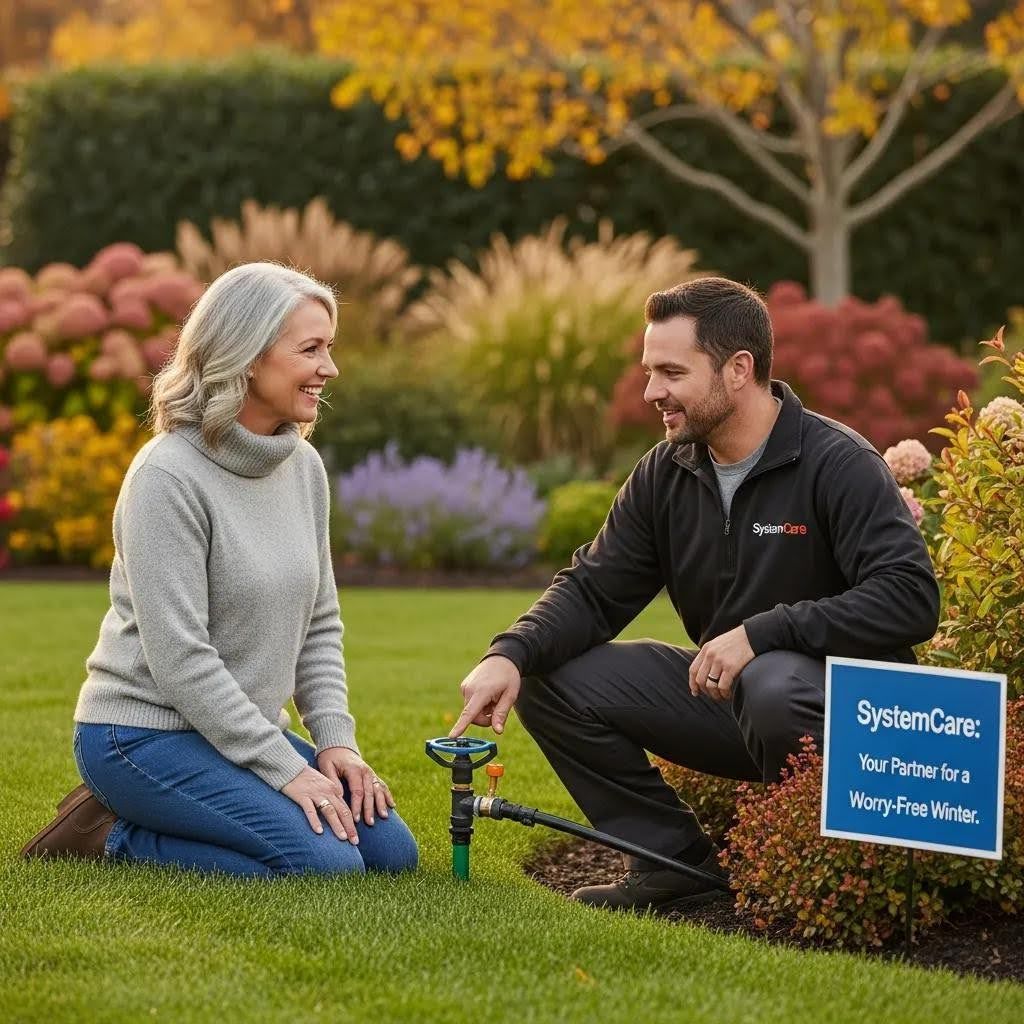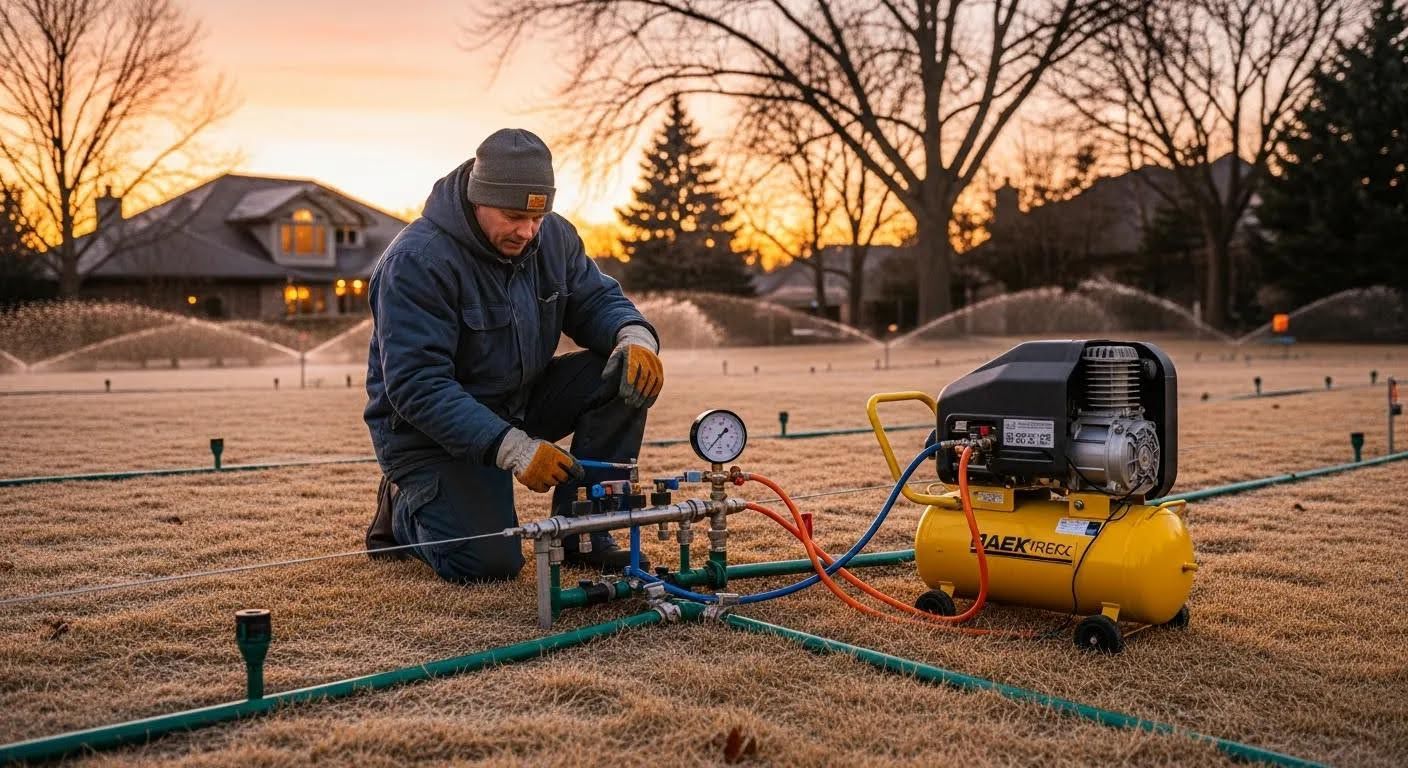What are the Costs of Installing vs Upgrading an Irrigation System in Williamsburg?

Investing in your Williamsburg property means creating a lush, healthy landscape that reflects the region’s natural beauty and history. However, achieving that vibrant greenery requires more than just hoping for rain; it demands a precise, consistent, and efficient watering plan, which is where a dedicated system becomes essential. As you look to protect your landscape investment, the primary question quickly becomes whether to embark on a full installation or pursue strategic upgrades to an existing setup, and critically, how much each option will cost in this specific area. Finding a reliable Irrigation Company in Williamsburg, VA is the first step toward receiving accurate, localized pricing that accounts for James City County regulations, water pressure variables, and the unique topography of the Hampton Roads region.
This detailed guide breaks down the true expenses involved in both processes, helping you forecast your budget, understand the hidden costs of permitting, and evaluate the long-term return on investment (ROI) that modern, water-efficient technology provides. We aim to equip you with the knowledge to make the most informed decision, ensuring your lawn stays pristine without draining your wallet or wasting precious resources.
What is the True Value Proposition of Installing a New Irrigation System in Williamsburg, VA?
The decision to install a brand-new irrigation system is not just about convenience; it is a fundamental investment in the long-term health and value of your home or commercial property. Many property owners focus solely on the initial price tag, but the true value lies in the automated efficiency and conservation capabilities that protect your landscape against the ebb and flow of Virginia’s coastal climate. By delivering precise amounts of water exactly where and when it is needed, a modern system eliminates the damaging effects of inconsistent manual watering.
Choosing a professional and licensed Irrigation Company in Williamsburg, VA ensures that your system is designed from the ground up to maximize efficiency. We understand the local climate, soil conditions, and the specific needs of common turf varieties like Fescue and Bluegrass. This foundational expertise translates directly into a system that uses less water while fostering deeper, healthier root growth.
The Local Context: Water Regulations and Climate
Williamsburg, being part of James City County, operates under specific water management and connection regulations that directly influence the total installation cost. While the overall price of components like valves and piping remains consistent, local compliance requirements are mandatory and non-negotiable parts of the budget. Ignoring these local nuances can lead to costly rework or fines down the line.
The local climate, characterized by hot, humid summers and occasional periods of drought or heavy rainfall, necessitates a responsive system. Manual watering schedules often fail to adapt to these shifts, resulting in either underwatering during dry spells or wasteful overwatering during wet periods. A custom-designed system accounts for these typical weather patterns.
Why Your Landscape Requires Professional Customization
A one-size-fits-all sprinkler kit bought from a home improvement store simply cannot provide the tailored coverage required by a diverse landscape. Your property likely features turf areas with high sun exposure, shaded zones, and specific flower beds, all of which have vastly different hydration requirements. Professional design ensures every inch of your property receives the correct amount of water.
This customized approach not only promotes optimal plant health but is also a critical element of water conservation. By dividing your property into specific hydrozones, a custom system allows you to manage the runtime and duration for each area independently. This precision prevents runoff and ensures that every drop contributes directly to your landscape’s vitality.
Deconstructing the Cost of New Irrigation Installation (Residential vs. Commercial Rates)
When budgeting for a new irrigation system, it is helpful to view the installation process as a series of phases, each contributing to the final expense. Typically, the cost of a new lawn irrigation system installation ranges widely, from $2,500 to over $10,000, driven primarily by the size of the area, the number of zones, and the technology chosen. Understanding this breakdown allows for greater control over the final pricing.
The key distinction between residential and commercial projects is scale and complexity. Residential systems are usually based on standard potable water service and cover properties up to one acre. Commercial rates, conversely, involve higher flow-rate systems, specialized two-wire technology, and complex design layouts for entities like Homeowners Associations (HOAs) or corporate campuses, resulting in significantly higher investment levels.
Phase I: Design and Assessment Fees
Before any earth is moved, a thorough site assessment is mandatory to ensure system performance and adherence to local plumbing code. This initial consultation includes calculating the available water pressure and flow rate (PSI and GPM) from your source connection, which dictates the layout and number of sprinkler heads per zone. Professional mapping is essential for efficiency.
An accurate design minimizes wasted materials and future service calls by preventing issues like low pressure or poor coverage. Some companies roll this design fee into the final installation price, while others charge a standalone fee. Always request an itemized quote that clearly shows the cost associated with the initial hydraulic analysis and final system blueprint.
Phase II: Core Component Cost Breakdown
The physical components represent a large portion of the material cost, and quality matters significantly for longevity and performance. Choosing commercial-grade components from trusted manufacturers provides durability that inexpensive parts cannot match, especially considering the seasonal freezing and thawing cycles in Virginia.
System Components and Pricing Variables:
- Controller: The "brain" of the system, ranging from basic fixed-schedule timers to advanced smart controllers with Wi-Fi connectivity. Smart controllers, while a higher upfront cost, are necessary for Efficient Lawn Care with Smart Irrigation in Williamsburg.
- Solenoid Valves: These electromechanical switches control the water flow to each individual zone. The total number of valves directly correlates to the number of hydrozones required by your property design.
- Piping and Control Wiring: The bulk of the material cost is in the PVC piping and the trenching required to bury it at the proper depth (at least 24 inches for supply lines in some areas) to protect it from maintenance activities and frost.
- Sprinkler Heads: The type of head chosen—rotary, fixed spray, or specialized micro-irrigation emitters—depends entirely on the zone application (lawn turf versus garden beds). High-efficiency, pressure-regulated spray bodies are highly recommended for water savings.
- Backflow Prevention Assembly: A required safety device, which is an immediate upfront cost, typically ranging from $250 to $550 for the device alone, before installation labor.
Site Specific Variables Impacting Labor and Materials
The actual labor cost of installation, which often constitutes 50% or more of the total bill, is highly dependent on what lies beneath your lawn. Hard, rocky soil or areas with dense clay require more time and specialized equipment for trenching compared to loose, sandy loam, increasing the man-hours required.
The accessibility of the water source and the complexity of the landscape layout also influence labor. Sloped properties, mature tree root systems, and areas requiring boring under existing hardscaping (like driveways or walkways) necessitate specialized techniques and additional labor hours. Every property presents unique installation challenges that must be assessed before a final price can be determined.
Decoding System Upgrade Pricing: When Repair Becomes Replacement
For homeowners with an existing irrigation system, the cost calculation shifts from a full installation to an evaluation of upgrades and repairs. System upgrade pricing is generally more manageable than a new install, but requires a strategic assessment to determine which components are failing and which can be retrofitted with modern, efficient technology. The most common upgrades focus on compliance and water conservation.
A thorough system audit by a professional company should be the first step in determining if an upgrade is feasible. If the underlying PVC piping infrastructure is sound and correctly routed, upgrading the "above-ground" and electronic components offers a significant boost in performance and efficiency at a fraction of the full replacement cost.
Mandatory Annual Compliance and Testing
In the Williamsburg region, there are annual costs that are mandatory for maintaining compliance and performance, regardless of whether you have a new or upgraded system. These include the crucial seasonal services that protect your investment from damaging weather.
- Spring Start-Up/Summerization: This service reactivates the system after winter, checks for leaks, and adjusts sprinkler heads for optimal coverage.
- Winterization/Shut-Down: This involves using specialized equipment to blow compressed air through the lines, ensuring all water is removed to prevent pipes from freezing and cracking. This is essential in Virginia.
- Backflow Testing: The Virginia Department of Health mandates annual testing of your backflow prevention device to ensure the potable water supply remains protected from contaminants. These compliance tests are often included in comprehensive maintenance packages.
These routine procedures, often bundled into various Bronze, Silver, or Gold packages by reputable companies, are far more cost-effective than emergency repairs resulting from frozen pipes or failed backflow tests. You can find essential seasonal information in the Williamsburg Guide to Mid-Season Irrigation Maintenance which details best practices for continuous system health.
The Cost-Benefit of Smart System Conversions
The most significant upgrade modern homeowners pursue is the conversion to a smart irrigation system. Replacing an outdated, fixed-schedule controller with a Wi-Fi-enabled smart controller is a game-changer for efficiency, offering substantial returns on the initial investment. These controllers use local weather data, evapotranspiration rates, and sometimes dedicated soil moisture sensors to automatically adjust watering schedules in real-time.
While the controller itself may cost between $170 and $530 more than a basic timer, studies, including those by the Environmental Protection Agency (EPA), show that smart controllers can reduce outdoor water use by 30% or more. In the coastal Virginia region, where water usage can peak dramatically in summer, these savings often recoup the investment within just a few seasons, making it a highly intelligent financial decision.
High-Efficiency Nozzles and Drip Conversion
Older systems often use outdated spray heads that create misting and overspray, leading to significant water waste through evaporation and runoff. A simple, cost-effective upgrade is replacing these standard spray nozzles with high-efficiency, pressure-regulated rotating nozzles. These new nozzles distribute water much more slowly and uniformly, allowing the soil to absorb it properly.
For landscape beds, planting containers, and foundation plantings, converting to micro-irrigation or drip irrigation is the ultimate water-saving upgrade. Drip systems deliver water directly to the plant root zones, minimizing waste. While the materials for drip lines and emitters are minimal, the labor involved in modifying existing zone lines to accommodate the pressure reduction required for drip systems must be factored into the upgrade pricing.
The Non-Negotiable: Permitting and Backflow Compliance in James City County
When planning either a new installation or a major system overhaul, particularly involving the water connection, permitting and compliance are unavoidable costs. In Williamsburg, these regulatory requirements are designed to protect the integrity of the public water system and are meticulously enforced. Working with a company that handles all permitting and scheduling is crucial for a stress-free project.
Understanding the JCSA Connection Fee
For any new system connecting to the public water source in James City County, the James City Service Authority (JCSA) requires a mandatory Lawn Irrigation Connection (LIC) fee. This one-time fee, which must be paid before the system can be legally commissioned, currently stands at $1,000. This is a crucial line item that must be included in your budget planning, as it is separate from labor, materials, or the cost of the backflow prevention device itself.
This fee reflects the administrative and infrastructural costs associated with managing the demand of residential irrigation systems on the public supply network. Ensuring this fee is paid and proper documentation is submitted by the installer is a key component of a compliant installation project.
Why Backflow Prevention is a High-Hazard Requirement
The Virginia Department of Health (VDH) classifies lawn irrigation systems as a "high hazard" due to the potential for contaminants—such as fertilizers, pesticides, and animal waste—to be siphoned back into the potable water supply line. To mitigate this risk, a backflow prevention assembly is legally required on every system connected to the municipal supply.
The two main approved devices are the Pressure Vacuum Breaker (PVB) and the Reduced Pressure Principle (RP) assembly. The choice affects both cost and placement:
- PVB Assemblies: Generally less expensive but can only be used if there is no potential for backpressure in the system. They must be installed at least 12 inches above the highest sprinkler head.
- RP Assemblies: More expensive but offer the highest level of protection against both backsiphonage and backpressure. These are mandatory if you plan to introduce any chemicals (like liquid fertilizer or specialized winterization fluids) directly into the irrigation system. They must be installed 12 to 36 inches above grade.
Installing, relocating, or replacing these devices requires a separate plumbing permit from the county, another cost element that must be managed. For comprehensive information on device types and local rules, read our resource on Backflow Prevention for Irrigation Systems.
Working with a Licensed Professional
The complexity of local permitting, the $1,000 JCSA fee, and the strict technical requirements for backflow installation underscore the necessity of hiring a licensed contractor. An experienced firm not only manages the paperwork but also guarantees the installation conforms to the Uniform Statewide Building Code and local JCSA guidelines.
For instance, proper trenching depth and ensuring the backflow device is installed correctly—not wrapped in insulation, and accessible for annual testing—are details that a homeowner or unlicensed installer may overlook. Choosing a reputable firm like Hampton Roads Irrigation & Landscape minimizes liability and ensures the system’s longevity.
Residential Cost Models: Zone-Based vs. Square Footage
Pricing an irrigation project can be confusing due to the variety of methods used by contractors. The two most common methods are cost per square foot and cost per zone. For homeowners in Williamsburg, the zone-based model often provides a clearer, more practical budget estimate because it directly relates to the functionality and customization of your specific landscape.
The Zone-Based Pricing Advantage
A zone is a designated area of your lawn or landscape that is controlled by a single valve and runs independently of others. A typical suburban property of a quarter-acre often requires between four and seven zones to ensure adequate and efficient coverage of turf, shrub beds, and flower gardens.
- Typical Range: Expect to invest approximately $500 to $1,000 per zone for an average installation.
- Four-Zone System: The sweet spot for many Williamsburg suburban homes, typically budgeting between $2,000 and $4,000 for components and installation (excluding the $1,000 JCSA fee). This allows for separate control of the front lawn, back lawn, and two garden areas.
- Seven-Zone System: Suitable for larger or more complex properties, this system pushes the investment range higher but provides superior water management flexibility.
The Typical Quarter-Acre Lawn Budget
The average homeowner with a quarter-acre of turf can use the $2,000 to $4,500 range as a starting point for the physical system, materials, and labor. This estimate usually assumes:
- Standard water pressure and flow.
- Relatively flat terrain and typical Eastern Virginia soil.
- Use of quality rotary or fixed-spray heads for the turf areas.
- A mid-range traditional or simple smart controller.
This figure does not include the mandatory JCSA LIC fee or the cost of the backflow prevention assembly and associated permitting. Always use this base estimate and then add the local mandated compliance costs for a complete budget picture.
Customizing for Specific Landscape Zones
The complexity of your landscaping significantly impacts the cost. Adding specialized zones for features such as foundation plantings or vegetable gardens requires additional materials and specialized emitters, such as micro-sprayers or buried driplines.
These customized micro-irrigation zones are generally smaller but may require slightly more labor per square foot due to the detail work involved in running tubing precisely to each plant. However, they are invaluable for preserving high-value or sensitive plants, protecting your overall landscaping investment.
Commercial and Specialty Irrigation Systems in Hampton Roads
Commercial and large-scale residential properties in the Hampton Roads Irrigation & Landscape service area face unique challenges that drive their installation and upgrade costs significantly higher than a standard residential job. These projects require specialized equipment, detailed civil engineering knowledge, and systems designed for continuous, high-volume operation.
Advanced Two-Wire Systems and Large-Scale Needs
Commercial installations—covering entities like large corporate campuses, community parks, sports fields, or golf courses—often utilize two-wire systems. This technology simplifies wiring across vast distances, using only two wires to communicate with hundreds of valves, which is far more efficient than the bundle of wires required by traditional residential systems.
The investment for commercial systems can easily start at $20,000 and climb well into six figures, depending on the acreage and system requirements. This includes heavy-duty commercial-grade components, larger mainline piping, high-capacity pump stations (if required), and specialized central control management software that allows for remote monitoring and reporting across multiple zones.
Specialized Water Management and Drainage Solutions
Large commercial properties frequently require comprehensive drainage solutions integrated with their irrigation systems to manage stormwater runoff and prevent waterlogging on expansive turf areas. Companies with NDS Drainage Certified technicians offer sophisticated grading and drainage services, which often form part of the total project cost.
A specialized system is also critical for compliance with local ordinances regarding commercial water runoff. The ability to manage water precisely, reduce waste, and meet sustainability goals often justifies the higher initial expenditure for commercial clients, positioning it as an environmental and operational imperative.
The Long-Term ROI: Water Savings and Property Value
While the upfront cost of installing or upgrading an irrigation system in Williamsburg is a substantial decision, it is essential to focus on the long-term Return on Investment (ROI). This return manifests in two primary ways: tangible savings on water bills and intangible increases in property value and curb appeal.
Maximizing Efficiency for Water Savings
The greatest long-term financial benefit of a modern irrigation system is maximized water efficiency. For older, conventional systems that operate on a fixed schedule, it is common for 30% to 50% of the water used to be wasted due to inefficient nozzles, leaks, or overwatering. By upgrading to a smart controller and high-efficiency spray heads, you immediately stop this unnecessary waste.
The cost savings from this reduced water consumption accumulate rapidly, especially during the peak summer months. Over the decade-long lifespan of quality components, these savings often fully offset the initial investment, turning the system from a cost center into a sustainable asset.
Annual Maintenance Packages and Protection Plans
Protecting your investment requires more than just installing quality parts; it demands consistent, professional maintenance. Reputable providers offer structured annual maintenance plans that cover the essential seasonal services, helping you avoid unexpected emergency repair costs.
- Bronze: Essential Start-Up and Winterization services.
- Silver: Includes Start-Up, Winterization, and one Mid-Season check-up for efficiency adjustments.
- Gold: Comprehensive coverage including all seasonal services, backflow testing, and often discounted rates on necessary repairs or component replacements.
These packages offer peace of mind, knowing that your system is continuously maintained by experts. The predictable cost of an annual plan eliminates the risk of a high-cost failure caused by a small, undetected issue.
Selecting a Trusted Partner for Your Investment
When deciding on a contractor, remember you are entering a long-term relationship. The quality of the installation and the reliability of the ongoing service matter more than a slightly lower initial quote. Always research the provider's history, licensing, and client satisfaction record. You can quickly review what previous customers have said about our work and commitment to quality by checking our reviews.
A reliable Hampton Roads Irrigation & Landscape provider will stand behind their work with robust warranties on both parts and labor. This commitment ensures that any post-installation issues are handled promptly and professionally, safeguarding your investment and minimizing future stress.
Frequently Asked Questions About Irrigation in Williamsburg
Property owners in the Williamsburg area often share similar questions regarding cost, maintenance, and local regulations. Here are five of the most frequently asked questions to help clarify your installation or upgrade decision.
Q1: Is drip irrigation more expensive than traditional sprinklers for my landscape beds?
A well-designed drip system typically has a lower installation cost per square foot than traditional sprinkler systems when covering only garden and landscape beds. While the tubing and emitters themselves are inexpensive, the installation labor can be detail-oriented. However, the total cost of ownership is significantly lower due to the minimal water waste and reduced maintenance compared to troubleshooting spray heads.
Q2: How much water can a smart controller really save on my annual bill?
A: Research consistently shows that high-quality smart controllers can reduce outdoor water usage by 30% to 50% compared to systems running on fixed timers. In Williamsburg, where water rates are competitive and summer usage is high, a system that adjusts based on real-time weather and soil conditions can save hundreds of dollars annually, paying for the controller upgrade within a few seasons.
Q3: What time of day should I run my sprinkler system in Virginia for optimal health?
A: The ideal time to run your irrigation system in Virginia, particularly for Fescue and Bluegrass, is between 4 AM and 7 AM. Watering during this window minimizes water loss due to evaporation caused by sun and wind, and allows the water to soak deeply into the root zone before daytime heat hits. Watering too late in the evening can promote mildew and fungal diseases.
Q4: Do I need to obtain a permit for minor irrigation repairs, or just new installations?
A: Minor repairs, such as replacing a broken sprinkler head or fixing a pipe leak in the middle of a zone, typically do not require a permit. However, any work involving the main connection, the backflow prevention assembly (relocation, replacement, or installation of a new one), or significant changes to the system’s water source requires a plumbing permit from the local authorities, such as James City County.
Q5: Why is my backflow preventer required to be tested annually by the VDH?
A: The Virginia Department of Health (VDH) mandates annual testing because the backflow assembly is a mechanical safety device protecting the public potable water supply. Over time, internal components like springs and check valves can wear out or fail. The annual test ensures the device is functioning correctly and is capable of preventing contaminated water from your lawn from flowing back into your drinking water.
Finalizing Your Irrigation Investment in Williamsburg
The long-term value of a professionally installed or intelligently upgraded irrigation system in Williamsburg far outweighs the initial expense. Whether you are budgeting for the JCSA LIC fee and a full installation or calculating the ROI of a smart controller upgrade, the critical element remains the quality of the system design and the professionalism of the team executing the work. A well-designed system translates directly into a healthier landscape, lower water bills, and significantly reduced maintenance hassles for years to come.
As a dedicated Irrigation Company in Williamsburg, VA, we pride ourselves on providing transparent pricing and expert installation that meets every local code and optimizes water usage for the unique Tidewater climate. We believe in providing solutions that deliver convenience and conservation in equal measure, ensuring your investment truly enhances your property. To begin your free, no-obligation assessment and receive a detailed quote tailored to your specific property needs, please contact us today.
